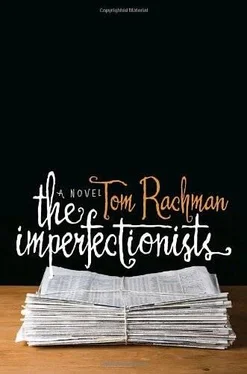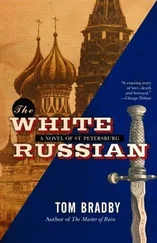By the end of the 1980s, Deb had divorced Jimmy. A few years later, they remarried. But soon she left him a second painful time, and he moved to Los Angeles to get away from the situation. He freelanced as a paralegal, which kept him afloat. But he had no health coverage, so when a molar went rotten he yanked it himself with needle-nose pliers. He was drunk at the time and bungled it, splintering the tooth and leaving chunks in the bloody gum. Herman happened to call a few days later and heard about the tooth and the fever that had followed. He demanded that Jimmy go to the hospital. At the emergency room, they told him the wound had gone septic. While waiting for the on-call dentist, he suffered a heart attack. Jimmy was fifty-six, but by the time he was discharged he had become an old man. In the following months, he aged further, grew forgetful and anxious, suspected that people were walking up behind him. He checked endlessly that his doors and windows were locked, that the gas was off. He often called in sick at the law firm where he freelanced, then eventually retired-it was foisted on him, really. At the time, Herman welcomed the news: finally, Jimmy could focus on his writing. He'd always said he'd finish his book once he retired.
And now he's here, in the spare room, asleep. Still no sign of the full manuscript, but at least here is a taste of Jimmy's writing. Herman prints a copy of the article and two pages emerge. He snatches them from the printer tray, rushes to the sofa, plops down to read.
It takes a moment before he can focus on the text, so excited is he. How many years has he waited for this! Sure, it's just a few hundred words, but it's a start. Might Jimmy have a full manuscript in that bag over there in the corner? Herman would never snoop, but how he longs to.
He focuses on the pages before him.
He reads through them.
Herman has worked as an editor for forty years. It doesn't take him long to realize. This article is no good.
It's a sort of editorial, but without any clear argument, touching on life in L.A., on the proliferation of guns in America, on declining civility. The article is full of grammar mistakes and platitudes. It's amateurish. Is this the right document? Maybe this is a rough draft? He goes to check the computer. By the mouse pad, he finds a scrap of scrunched paper and pulls it apart. It bears Jimmy's handwriting and contains a long list of notes, written, rewritten, crossed out, full of scribbles and question marks and lines and dashes and variations. Hours of effort have gone into this, a worthless piece of writing.
Herman can't sleep that night. He keeps sitting up in bed, turning on the lamp, stuffing himself with hard candies, then brushing his teeth all over again. At 6 A.M., he rises for good-he intends to escape the apartment before Jimmy wakes up. That way, Herman can study the article at the office and work out what to do.
But Jimmy appears from the spare room, saying he wanted to catch Herman before he left: there's a spelling mistake in the article.
"Don't worry. I'll fix it," Herman says.
Jimmy insists on doing it himself. He disappears into the computer room, makes his correction, and hands Herman a memory stick containing the article.
At the office, Herman shoots off an email to Kathleen, saying he may have a late addition to the editorial page. He isn't bound by this, but it leaves him the option. Does he have to run the piece? He could tell Jimmy it was good but that it needed more focus. Then again, honestly, can anything be salvaged from it? And the paper isn't his to fill as he pleases. It's not disloyal if he spikes the piece, is it? What about credibility? "Credibility," he mutters, and it is a sodden, fraudulent word on this day.
He resolves to publish the article. He has the power to. And he will. It'll appear in a single edition, down two half-columns, with a bloated headline and a pull quote to fill out the space, deep in the inside pages. He'll show the clipping to Jimmy tomorrow morning, he'll thank him, he'll throw a thick arm around his narrow friend and say, "After all these years, we got to work together."
He plugs the memory stick into his computer and opens Jimmy's document. But the text of the night before is gone. All that appears is a note: "Don't worry, kid. I deleted the thing. Did you know tonight is my last night in town? I'm taking you for dinner, and I pay. No arguments. Jimmy."
Kathleen asks about the editorial, and Herman tells her it was a false alarm. She points out a headline-"Global Warming Good for Ice Creams"-and proposes it for his next edition of Why? She adds, "I find it idiotic on so many levels."
"No, yes, you're right," he says, though he's not listening.
Jimmy chooses a touristy restaurant near the Vatican for their last dinner. Herman wishes he himself had picked-he can see from the curled menu outside that this place isn't serious. Food is not the point, of course, but he's on edge: his friend leaves tomorrow and nothing has been achieved. During dinner, Jimmy drinks three glasses of wine, which is the most he's had since the heart attack. As alcohol seeps into him, he rambles charmingly, like in the old days, when he was legendary for tipsy philosophizing, reciting Yeats or Yevtushenko from memory, blathering on about Joyce, and proclaiming the funniest word in the English language to be "rump." Herman associates Jimmy's drunken chatter with their happiest times.
They don't mention his article at first. But the evening is going so well that Herman says, "This whole thing could be an impetus, don't you think? A little reminder, you know. To really write something now."
Jimmy sits up straighter, clears his throat. "Herman," he says calmly, "I'm not writing anything. I haven't yet, and I'm not going to now. I never was going to. I knew that from, maybe, age twenty. You're the one who kept going on about it."
"I didn't go on about it," Herman says, taken aback. "It's just that I thought-I think-that you are capable of something great. Something outstanding. You always had such talent."
Jimmy taps his friend's earlobe affectionately. "There's no such thing as talent, kid."
Herman pulls away. "I'm serious."
"So am I. I should have made it clear forty years ago that you had the wrong idea about me. But I'm vain. I guess I was trying to make a good impression. Only I'm too old to keep trying. So please stop talking about what I'll do. It only emphasizes what I didn't. I've had a good enough life, an average life. And that's fine."
"It's hardly been average."
"No? If not, then what proof is there to the contrary? I have the proof of sixty-five years."
Herman begins to dispute this, but Jimmy talks over him.
"You know what I liked about that article you had me do?" he says. "I liked working with you, Herman-that I enjoyed. Hearing how you'd get it into print. You really know the world of journalism, boy. See-you do useful work. Hard work. Not the hooey I've done. Standards. That's what you have. And I liked getting a sense of how you do it. That's a real pleasure for me. To see how far you've come."
"Don't be crazy. You're the one who wrote that article. Think how quickly you rolled it out. Professional writers sometimes take days over a piece, weeks even, months. Imagine if you really put some time into it? Doesn't that inspire you? To go back and work on something a bit more permanent?"
"I haven't got it in me," Jimmy says. "And I don't like leaning on you anymore. I take advantage of you too much. Always have. Your generosity. Me sleeping on the floor at Riverside Drive? I never paid a dime of rent in how many years?"
"You weren't my tenant. You were my friend. You didn't owe me anything."
Jimmy smiles. "You got a nutso perspective on certain things, Mr. Herman Cohen."
When they leave, Herman takes a handful of business cards from the restaurant and rests his hand on Jimmy's shoulder. As they emerge onto the street, Herman makes a show of looking around for a taxi to hide the fact that he's choked up.
Читать дальше












